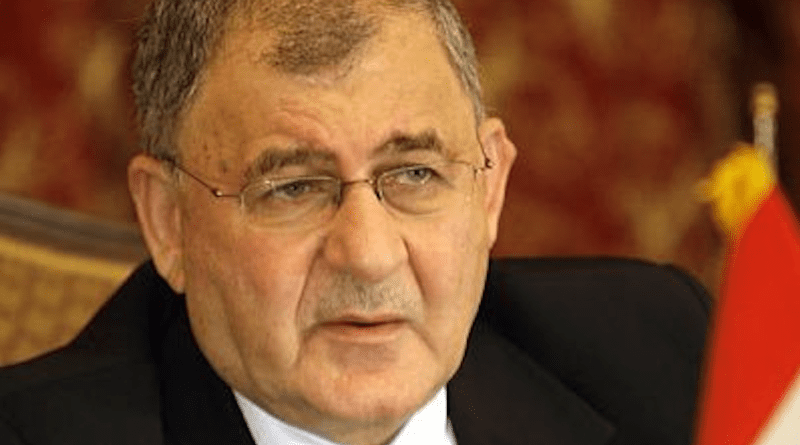Iraq: Parliament Elects Abdul Latif Rashid As New President
Kurdish politician Abdul Latif Rashid became the ninth president of Iraq after being elected by the country’s parliament, paving the way for the new government following a one-year delay.
Lawmakers in Iraq have elected Kurdish politician Abdul Latif Rashid as the country’s new president, paving the way for the formation of a new government and ending a year of deadlock, Al Jazeera reported.
Rashid replaced fellow Iraqi Kurd Barham Saleh as head of state after the two-round vote in parliament on Thursday, winning more than 160 votes against 99 for Saleh, an assembly official said. Saleh reportedly walked out of the parliament building as the votes were tallied.
Shia politician Mohammed Shia’ al-Sudani was quickly named prime minister-designate, assuming the task of reconciling feuding Shia factions and forming a government after a year of deadlock. Al-Sudani replaces caretaker Prime Minister Mustafa al-Kadhemi.
In Iraq’s power-sharing system, the presidency is reserved for Kurdish groups to nominate while the premiership falls under Shia blocs. The speaker of parliament is a Sunni.
Reporting from Baghdad, Al Jazeera’s Mahmoud Abdelwahed said the election of Rashid signals that “this chapter of rivalry has been concluded in the Iraqi parliament,” while noting that forming a government could still be an uphill battle.
“It remains to be seen what reactions could unfold in the streets given the fact that this has not been easy,” Abdelwahed said. “This process has taken a long time and it has included violence between supporters of rival political parties.”
The 52-year-old Sudani will now have 30 days to form a government, a daunting task that will require winning over those affiliated with influential Shia leader Muqtada al-Sadr.
The most recent political deadlock began after al-Sadr emerged as the biggest winner in an October 2021 parliamentary vote, but failed to rally enough support to form a government. Al-Sadr in August announced what he called his “final withdrawal” from politics, sparking protests.
In July, when al-Sudani was first proposed for the role, protesters backed by al-Sadr also stormed parliament. The standoff has seen both sides set up protest camps in the heavily fortified Green Zone, which houses many government buildings.
Iraq had already made three failed attempts this year to elect a new head of state.
The presidency was also fiercely contested between Iraq’s Kurdish region’s two main parties – the Kurdistan Democratic Party (KDP) which nominated Rashid, and its traditional rival, the Patriotic Union of Kurdistan (PUK). Both Rashid and al-Sudani have long histories in Iraqi politics.
Rashid was the minister of water resources from 2003 to 2010 and has since served as a presidential adviser. He hails from Sulaimaniyah, a major city in the semi-autonomous Kurdish region of northern Iraq, and speaks Kurdish, Arabic and English.
Al-Sudani rose to prominence within the Shia political leadership following the US-led invasion of Iraq in 2003.
In 2010, he launched his political career in Baghdad, rising within the government of prime minister Nuri al-Maliki and becoming the minister of human rights, then social affairs, and then of industry.

